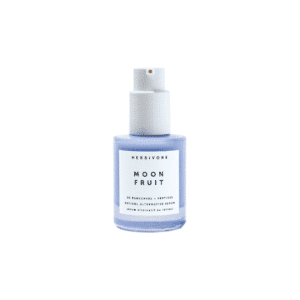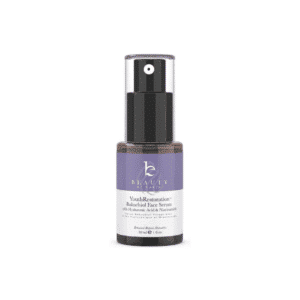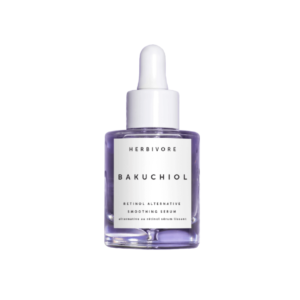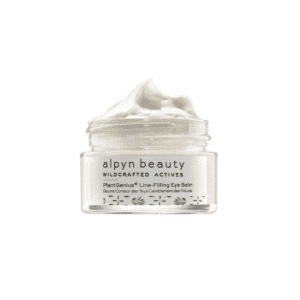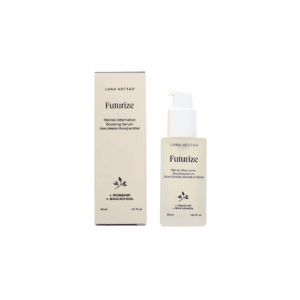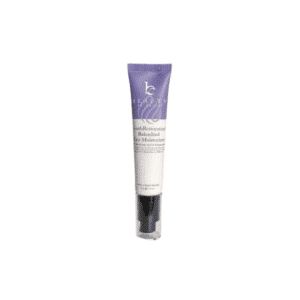Ah, fine lines and wrinkles – oh my! In our endless pursuit of youthful-looking skin, retinol has been known as the “holy grail” ingredient. Bakuchiol, however, has become a rising star in the skincare space. Bakuchiol vs Retinol – Which one is worth the hype? Which one is safer? Can pregnant women use both?
Let’s dive into all the details. Keep reading to learn more!
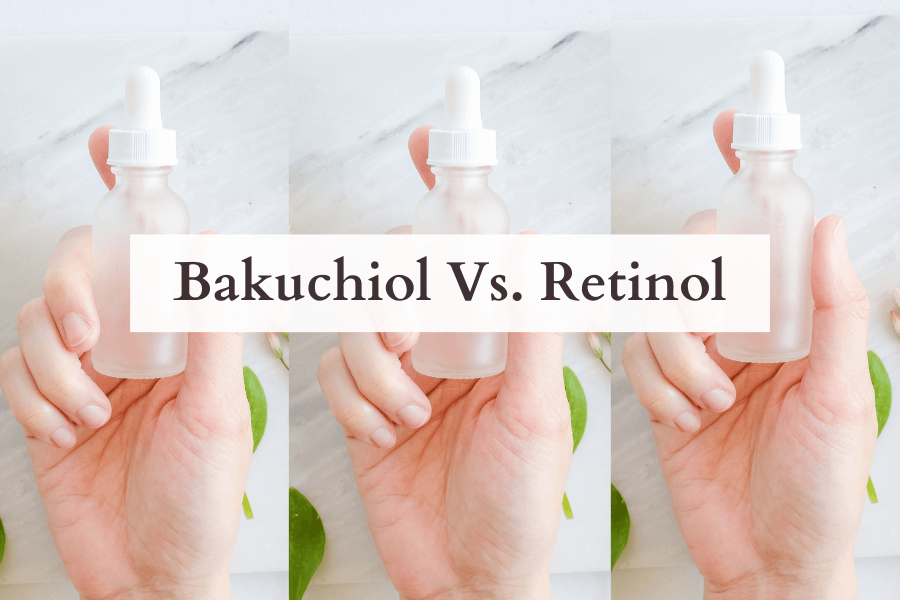
Note: This article contains affiliate links, meaning In On Around will make a small commission at no additional cost to you. This helps me maintain the site. As always, I value full transparency & only work with brands I love and trust.
What Is Retinol?
Retinol is one of the most popular skincare ingredients for wrinkle-reducing ingredients for years. It’s synthetically derived from Vitamin A and is usually available over the counter, while stronger versions with retinoic acid are prescription only.
While it’s been known as the gold standard for many years, popular doesn’t necessarily equate to safe.
Those with sensitive or dry skin should avoid retinol since it can be very, very irritating. Retinol has many concerning side effects (which we’ll dive into below)… so keep reading!
60-70% of women have sensitive skin, so retinol may not be the best choice. [1]
How Do Retinoids Work?
Retinoids are Vitamin A derivates. So retinol is a type of retinoid, but not all retinoids are retinol (confusing, yes!). Retinoids, like retinol, are known for increasing cellular turnover. Basically, they help remove dead skin cells [2]
Retinoic acids work by triggering specific cell receptors that can increase collage Type I, III, and IV production (which helps make skin more firm). They can also be found in certain medications/supplements and are very potent chemicals.
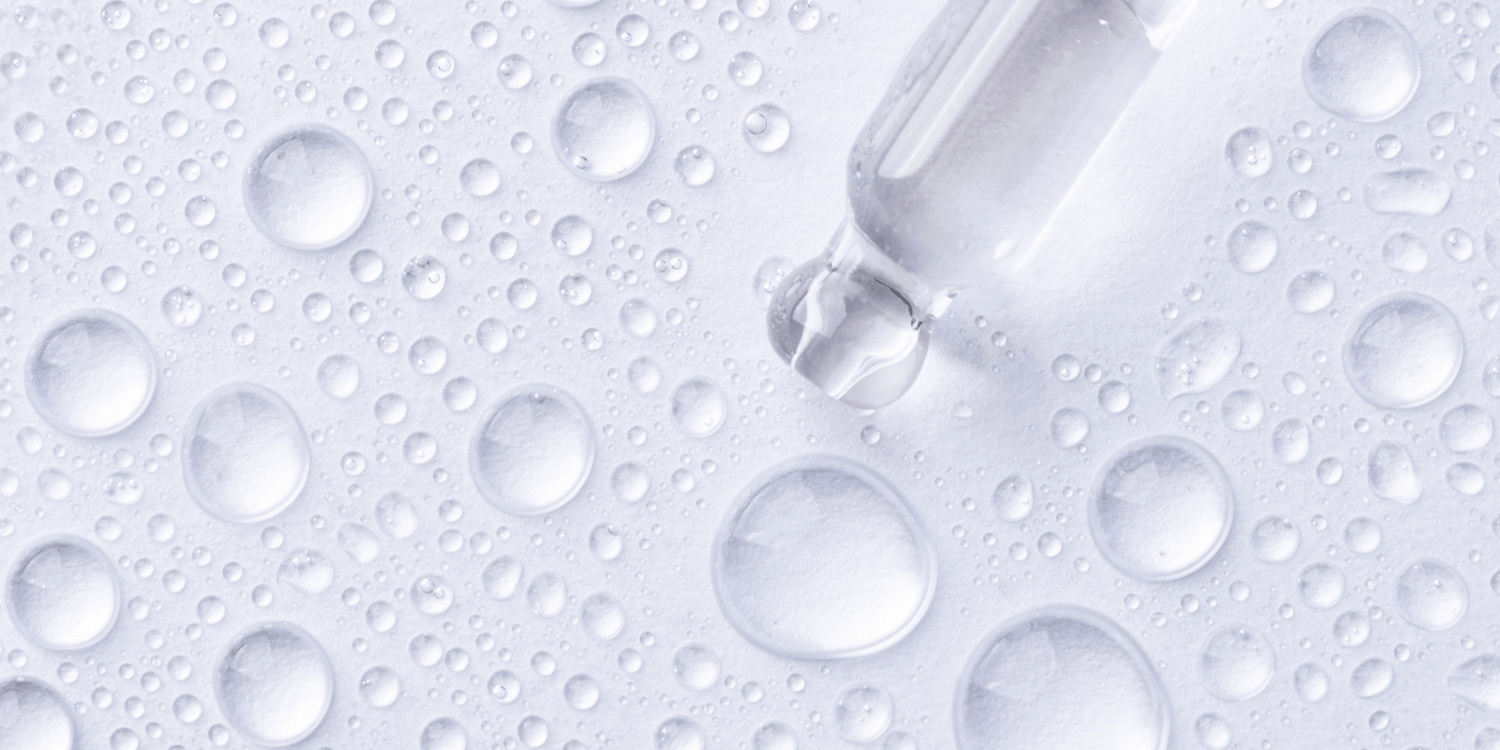
What Are The Side Effects Of Retinol?
Especially for those with sensitive skin, retinol is potentially linked to retinol dermatitis and symptoms like:
- Redness
- Skin sensitivity to sunlight, which a potential for increased risk of skin cancer
- Burning
- Skin inflammation
- Dryness and flaking
- Skin peeling
- High levels of vitamin A in the body (especially serious if you’re pregnant!)
Retinol has photostability issues, meaning it should only be used at night to avoid direct sun exposure and potential skin sensitivity. When used during the day, your skin can be more sensitive to sun exposure (… which is not a good thing)!
Whether you use retinol or not, always make sure to apply high-quality mineral-based SPF on your face and neck. You can learn more about non-toxic sunscreen here: Holistic Sun Safety Tips & Non-Toxic Sunscreen
Typically, retinol side effects can be pretty extreme and you’ll usually require an adjustment period. Just the risk of extra skin damage from the sun makes me want to avoid retinol products.
What Is Phyto-Retinol?
Phyto-retinol is not the same as retinol. In fact, phyto-retinol is a retinol alternative derived from plants. It’s an umbrella term for a variety of plant-derived molecules that can have a similar effect to synthetic retinol. In case you were wondering, it can also be spelled as “phytoretinol” as well on product packaging (without the dash).
Phyto-retinol is not the same as synthetic retinol.
When looking for a bakuchiol serum, keep in mind that some phyto-retinol products use other active ingredients. Bakuchiol is a phyto-retinol, but not all phyto-retinol products contain bakuchiol. Rosehip seed oil, sea fennel extract, and ingredients from the picāo preto are also common phyto-retinols in skincare!
What Is Bakuchiol?
Bakuchiol has been gaining popularity as the new, natural alternative to retinol. It’s great in an anti-aging skincare routine, especially for most people with sensitive skin! Bakuchiol has been shown in some studies to be comparable with retinol in its ability to improve photoaging or sun damage, without as many side effects! [5]
Bakuchiol is a phytochemical or prenylated phenolic monoterpene, derived from the seeds of the plant Psoralea Corylifolia (aka Babchi Plant). Basically, it’s a chemical compound from a plant that’s native to many Asian countries. This type of plant has been used for centuries in Eastern Medicine and Ayurveda.
While it’s not chemically the same as retinol, it works in a very similar way by impacting specific skin cell receptors Bakuchiol has a completely different chemical structure than retinol – they are two different chemical compounds! Yet, they have a very similar gene expression, but bakuchiol doesn’t act via retinoic acid receptors and they’re better at slowing down MMP-1 and MMP-12 enzymes (which break down collagen and elastin).
It can also be listed on the label as Psoralea Corylifolia Seed Extract or Babchi Extract. Babchi oil is a product of Bakuchi seeds – Bakuchiol is the active chemical component in those seeds.
This “herbal alternative to Botox” or “nature’s retinol” can be a great swap!
Bakuchiol is derived from plants, while retinol is derived from Vitamin A.
What Are The Side Effects Of Bakuchiol?
Luckily, there are minimal side effects of bakuchiol! Unless you have an allergy to the plant (which is rare), you likely won’t experience any side effects (… but everyone is different!). With any skincare product, it’s always best to do a patch test on your skin to gauge how you’ll react. While retinol can be a bit harsh on the skin, bakuchiol helps to soothe the skin.
Bakuchiol can deliver retinol-level results, without the side effects!
Bakuchiol Skin Care Benefits
The research is limited, but it’s very promising. Bakuchiol has been potentially linked to… [6, 7, 8, 9, 10, 11]
- Reduce fine lines and wrinkles
- Increased collagen production
- Improve hyperpigmentation
- Help with acne
- Increase cell turnover
- Improve photoaging or skin damage from the sun
- Shrinkage of pores
- Can help with psoriasis and eczema
- Increase skin elasticity and firmness
- Anti-bacterial and anti-inflammatory properties
Bakuchiol has quickly become a sensitive-skin-friendly retinol alternative! It’s considered a very well-tolerated and versatile ingredient. In addition, bakuchiol is always vegan, while some retinoids can come from animal sources.
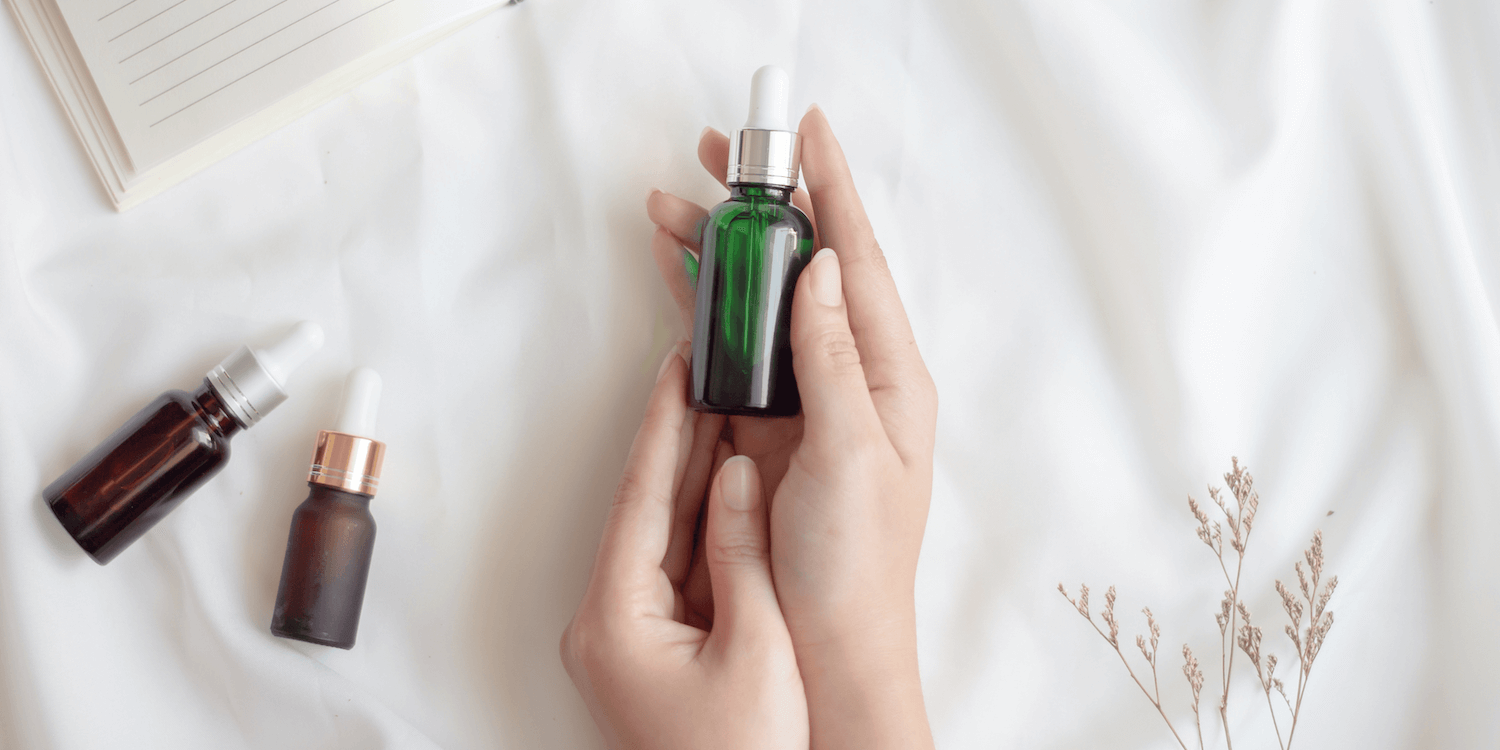
How To Use Bakuchiol
When applied twice a day, most people can see some results from bakuchiol after just six to twelve weeks. Since it’s photostable, it can be used both during the day and at night (unlike retinol). Bakuchiol won’t be degraded by sun exposure (… which is great)!
Incorporate bakuchiol in both your daytime and nighttime skincare routine – just a couple of drops will go a long way! It can even be mixed with many other serums, like Vitamin C serum. To learn more about Vitamin C serum, check out: How To Use Vitamin C Serum Properly For Dark Spots
Since retinol & bakuchiol target similar receptors, it’s best to avoid using them at the same time. In fact, swap retinol for bakuchiol!
Bakuchiol is gentle on the skin.
Is Bakuchiol Good For Acne?
Yes, bakuchiol can be great for acne-prone skin. Since bakuchiol is anti-inflammatory with a high level of antioxidants, it can help to soothe acne. As with most skincare ingredients, be patient for the effects to work.
Is Retinol Safe During Pregnancy And Breastfeeding?
No, retinol should be avoided while pregnant and breastfeeding. This is why I’m a strong proponent of safer alternatives! Retin-A, retinol, and retinyl palmitate are all classified in the Federal Department of Agriculture (FDA) category C, especially for oral vitamin A. This means that the “risk to the fetus can’t be ruled out.” When retinol gets absorbed by the skin, it’s converted into retinoic acid.
To always err on the side of caution, it’s best to avoid using retinoids when pregnant, breastfeeding, or before you’re looking to conceive.
Is Bakuchiol Safe During Pregnancy And Breastfeeding?
It’s always best to err on the side of caution when incorporating any product when pregnant or breastfeeding. While bakuchiol hasn’t shown any concerning impacts on pregnancy, it’s a fairly new ingredient in mass-produced skincare. Many doctors and skincare experts say that bakuchiol is completely safe for use during pregnancy, BUT there haven’t necessarily been many studies on its use while pregnant.
For that reason, it’s best to avoid bakuchiol during pregnancy out of an abundance of caution. Will it have an impact on your growing baby? No, probably not (according to the research we have on hand)… but always speak with your doctor (like a naturopathic doctor/OBGYN) before incorporating anything new.
It’s always best to have a very simple, natural skincare routine when preparing to conceive or when you’re pregnant/breastfeeding. Salicylic acids, AHAs, and BHAs should also be avoided during pregnancy.
Favorite Bakuchiol Products
Always look for brands with 0.5%-1% concentration of bakuchiol – many dilute it amongst other ingredients. Bakuchiol that’s not properly diluted, however, can cause skin irritation so make sure it’s best to avoid any DIY bakuchiol products more than 1% bakuchiol.
These are some of the cleanest bakuchiol products available! Bakuchiol products are available in serums, moisturizers, toners, and eye cream/balms.
- Herbivore Bakuchiol Serum – this is my favorite!
- Herbivore Moon Fruit Bakuchiol Serum
- Beauty By Earth Bakuchiol Serum
- Beauty By Earth Bakuchiol Moisturizer
- Beauty By Earth Bakuchiol Toner
- Alpyn Beauty Line-Filling Eye Balm
- Luna Nectar Futurist Phyto-Retinol Serum
Important reminder: just because a product is “board-certified dermatologist recommended” doesn’t mean that it’s non-toxic or the right choice for you! As always, avoid products with a confusing chemical cocktail of ingredients, especially ones synthesized from a lab! To learn more about the ingredients to avoid in skincare, please check out the Clean Beauty Checklist E-Book and In On Around™ Academy!
Bakuchiol = a great alternative to retinol
Final Thoughts – The Bottom Line on Bakuchiol Vs Retinol
Should you switch from retinol to bakuchiol? What’s the verdict? There is no doubt that bakuchiol is just as effective as retinol, without some of the many side effects. Bakuchiol is the clear winner, hands down!
Phytoretinols can be a great natural alternative. Keep in mind that it is still a very new skincare ingredient, so the science around it can change over time. If you plan on conceiving or are pregnant/breastfeeding, it’s best to err on the side of caution until more studies come out.
⬇ Pin this Bakuchiol Vs Retinol pic on Pinterest for future reference! ⬇
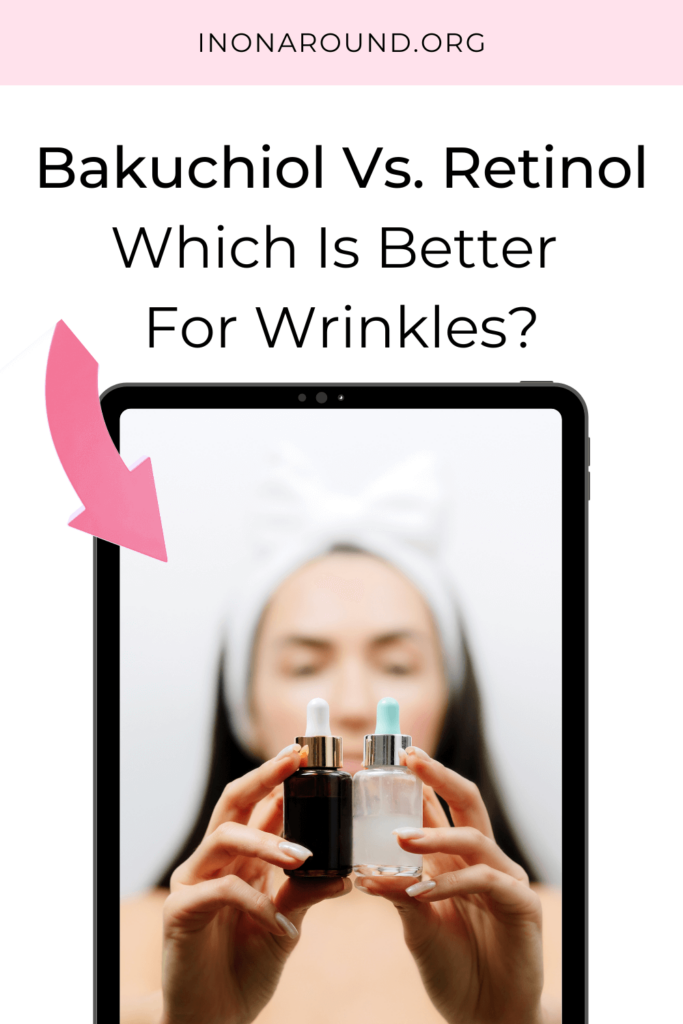
Frequently Asked Questions – Bakuchiol Vs Retinol
Click on the below FAQs to learn more about bakuchiol vs retinol skincare products and clean beauty phyto-retinols!
What Is Retinol?
What Is Phyto-Retinol?
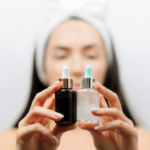
Phyto-retinol is not the same as retinol. In fact, phyto-retinol is a retinol alternative derived from plants. It’s an umbrella term for a variety of plant-derived molecules that can have a similar effect to synthetic retinol. In case you were wondering, it can also be spelled as “phytoretinol” as well on product packaging (without the dash).
What Is Bakuchiol?
Is Bakuchiol Good For Acne?
Have you tried bakuchiol?
Let me know your thoughts about Bakuchiol Vs Retinol in the comments below!
You can watch our web story here.
xoxo,

Want to read more? Check out my other articles here!
References on Bakuchiol Vs Retinol: Bustle, InStyle, Vogue, Doctor Anne, Healthline, The Sunscreen Company, Science And Skincare, Camille Styles, Byrdie, Wellness Mama, Clearstem, 100% Pure, The Organic Pharmacy, Covey, Fed And Fit, Yora, Good Habit, Caley Cosmetics, Beautiful With Brains, Skin Spa, Morganna, Anokha, More, Beauty By Earth, Bare Minerals
Copyright In On Around LLC 2022 ©. The statements made on this website have not been evaluated by the FDA (U.S. Food & Drug Administration). They are not intended to diagnose, treat, cure, or prevent any disease. The information provided by this website should not be used as individual medical advice and you should always consult your doctor for individual recommendations and treatment. The information contained in this site is provided on an “as is” basis. Related to this site, there are no guarantees of completeness, accuracy, usefulness, or timeliness. In On Around LLC assumes no responsibility or liability for any errors or omissions in the content of this site.

